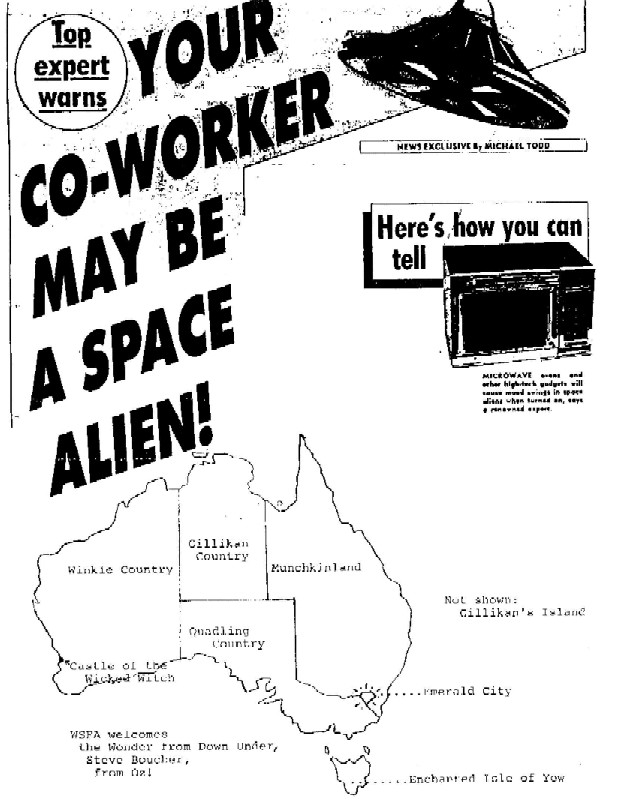 By XAZMIN GARZA
By XAZMIN GARZADon't leave your manners at home when you visit a spa or salon.
Spa and salon visits should be a time of relaxation. But if you should find yourself in a situation you don't know how to handle, stress levels quickly rise and suddenly you need a massage to calm you down from your massage. Matters such as tipping, arrival times, cell phone use and eating might be completely understood in other service industries, but become muddled when steam rooms and curling irons are involved.
To clear up any confusion, we've assembled a brief spa and salon etiquette guide. You'll find a variety of categories in which there may be a slew of expectations. Note, we've solicited advice from both casino and non-casino establishments. Keep these tips in mind for your next facial or blow out.
Brannon, owner of Brannon Salon at Hard Rock Hotel
Whatever you do, don't: Talk s*** about the gossip you read in the smut magazines. One of the celebrities could be in the salon.
Cancellation notice: Anything before the same day. Same days really p*** stylists off.
Tip the shampoo person? Yes, $5 and $10 if a different person blows you out.
How much do I tip my stylist? Between $20 and $40 (no matter the cost). You are paying for the service and tipping for the time.
Cell phones: Not if I'm in the middle of a cut. No way. I can't see how the hair's falling.
OK to bring in magazine pics? Only if the picture is of you or if it's an up-do or bangs. Anything else isn't your face shape or skin tone.
Food: Absolutely, we have a menu of finger foods we offer.
If I'm sick: Stay home.
Kids: Leave the kids at home.
How late is too late to arrive? 10 minutes is too late. I cut on the half hour and you'll mess up my next appointment.
Alexandra Maloney, Moxie Hair Studio salon director
Whatever you do, don't: Do anything that will contradict the salon environment. It's meant to improve yourself.
Cancellation notice: 24 hours.
Tip the shampoo girl? Understand that stylists are sharing their tips with their assistants.
How much do I tip the stylist? It's a service industry, 10 percent to upwards of 25 percent.
Cell phones: We'll ask you politely to keep it down.
OK to bring in magazine pics? Sometimes they're helpful but we try to cater all designs around the individual.
Food: We try to discourage it but it's touch and go.
If I'm sick: We ask you not to come or your stylist could get sick and people take it personally when their stylist is gone.
Kids: The salon is reserved for adults.
How late is too late to arrive? When you're pushing the 17-minute mark.
Jennifer Lynn, spa director of Qua at Caesars
Arrival time: 30 minutes allows for a leisurely check in
How late is too late? You can come as late as you like. We'll do our best to accommodate the full service.
Please don't: Use cell phones. Not even to text.
Gender preference: We ask before the service and confirm it upon their arrival (so the guest doesn't have to fret about it).
How much cancellation notice: We request 24 hours but you have until closing time the day before. Anything after that we charge them for.
Exceptions: If your flight is delayed, we'll do our best to reschedule.
How much do I tip? It's discretionary but we usually say 15 percent to 20 percent or $20 to $25 an hour.
Who gets overlooked on tips? Our bath attendants. Depending on how long you're there, they should get $5 to $10.
Socializing: It's encouraged in our Roman Baths. Everywhere else, use a low "spa voice."
Lee Allen, Euphoria salon and spa manager
Arrival time: We suggest 10 to 15 minutes early.
How late is too late? Anymore than 10 minutes and you're gonna miss part of your treatment.
Please don't: Bring children to treatments longer than 15 minutes.
Gender preference: We have all female therapists.
How much cancellation notice: Four-hour cancellation notice is appreciated.
Exceptions: If you're coming down with a cold.
How much do I tip? Up to the client's discretion. When a client inquires we suggest they tip similar to restaurant tipping: 15 percent to 20 percent.
Who gets overlooked on tips? We don't have a crowd of attendants like at a resort spa. Everyone is taken care of on the final tip.
Socializing: Talk in a quiet voice or a loud whisper.



 The incident happened in high school -- where self-image is worth one's weight in gold.
The incident happened in high school -- where self-image is worth one's weight in gold.

 (Rochester, N.Y.) - Hundreds of people from our area going to Washington and New York City-- to see the pope in person. If you get a chance to meet him, how should you act?
(Rochester, N.Y.) - Hundreds of people from our area going to Washington and New York City-- to see the pope in person. If you get a chance to meet him, how should you act? April 16, 2008 - One of the often-overlooked truths of travelling in a band is that the smallest details about people's habits can become major obstacles. That's particularly true of grooming habits, which became a point of contention for Lady Antebellum when the group started touring together.
April 16, 2008 - One of the often-overlooked truths of travelling in a band is that the smallest details about people's habits can become major obstacles. That's particularly true of grooming habits, which became a point of contention for Lady Antebellum when the group started touring together. Your role, when visiting someone else’s office, is that of a guest, whether it is within your company or without. Don’t walk in and settle down as if you were entering your own office. Here are some guidelines:
Your role, when visiting someone else’s office, is that of a guest, whether it is within your company or without. Don’t walk in and settle down as if you were entering your own office. Here are some guidelines:



 It happens to everybody. If you’re the one making introductions and you forget the name of the person you’re introducing, you can say something like “I remember our chat at the Cézanne reception, but I’ve forgotten your name for the moment” or “Please tell me your name again. I’m having a temporary memory lapse.” Get the name and go right ahead with the introduction. Don’t make a big deal out of it by apologizing more than once. Everybody has experienced mental vapor lock from time to time and will understand your predicament. When you’re introduced to someone, say the person’s name and repeat it during the conversation to imprint it in your memory.
It happens to everybody. If you’re the one making introductions and you forget the name of the person you’re introducing, you can say something like “I remember our chat at the Cézanne reception, but I’ve forgotten your name for the moment” or “Please tell me your name again. I’m having a temporary memory lapse.” Get the name and go right ahead with the introduction. Don’t make a big deal out of it by apologizing more than once. Everybody has experienced mental vapor lock from time to time and will understand your predicament. When you’re introduced to someone, say the person’s name and repeat it during the conversation to imprint it in your memory. People wince inwardly when you mispronounce their names. It is a serious breach of business etiquette. If you don’t know the correct pronunciation of someone’s name, ask! If you are still in doubt, ask apologetically for the person to repeat it. Jokes or wisecracks about a person’s name are not funny and are offensive. If your own name is difficult to pronounce, help the person who is trying to pronounce it—and botching the job. You can smile and say: “It’s a tough one, isn’t it?” Pronounce it clearly without making a big deal about it. That just calls too much attention to the fact that the other person has made an error.
People wince inwardly when you mispronounce their names. It is a serious breach of business etiquette. If you don’t know the correct pronunciation of someone’s name, ask! If you are still in doubt, ask apologetically for the person to repeat it. Jokes or wisecracks about a person’s name are not funny and are offensive. If your own name is difficult to pronounce, help the person who is trying to pronounce it—and botching the job. You can smile and say: “It’s a tough one, isn’t it?” Pronounce it clearly without making a big deal about it. That just calls too much attention to the fact that the other person has made an error. In general, hugs and kisses are inappropriate in any business environment. In fact, touching others in the workplace, whether they are of the same gender or not, is impolite even if you feel that the other person is your pal. This stricture includes patting someone on the back, putting your arm around someone, or putting your hand on his or her shoulder.
In general, hugs and kisses are inappropriate in any business environment. In fact, touching others in the workplace, whether they are of the same gender or not, is impolite even if you feel that the other person is your pal. This stricture includes patting someone on the back, putting your arm around someone, or putting your hand on his or her shoulder.

